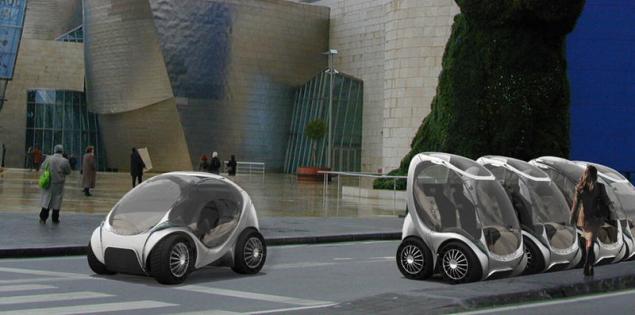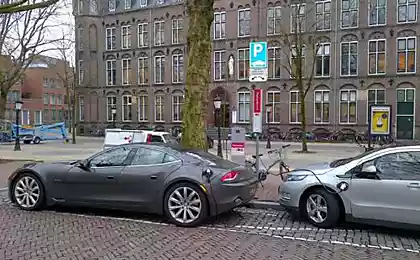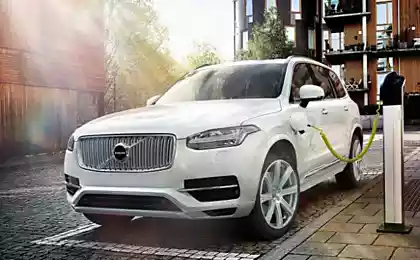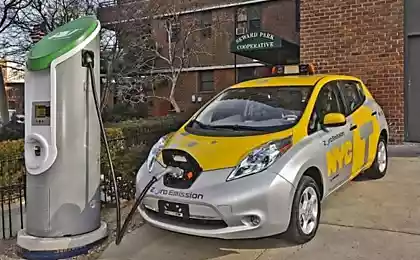565
Electric cars will not become mainstream before 2025
The high price of new vehicles in combination with a limited range and capacity of the batteries prevent the spread of electric vehicles, seeking to oust the vehicles with internal combustion engines, according to the report, entitled "Do the European market for electric vehicles is on the verge of a breakthrough?"
Today on the roads of Europe the share of electric vehicles is less than one for every 500 cars, and the public is unlikely to begin to move EN masse to the motors until the price of batteries will drop from the current level, from $200 to $400 per kWh — about $100 per kWh.

"The time of mass transfer can be defined as the point where electric cars will have a range and reliability at an affordable price, in order to effectively compete with conventional cars with internal combustion engines," says Ian Mowat, a senior analyst at Wood Mackenzie.
Although the segment Executive and upper-middle classes this might happen soon, truly electric cars will dominate when they conquered the car market lower-medium and small classes. So the challenge for manufacturers of electric vehicles are much more complicated.
The price of electric vehicles in Europe are directly dependent on government subsidies. It is therefore not surprising that the only European country which, according to Wood Mackenzie, is coming to the mass transition to electric cars, Norway is the government which offer the most generous subsidies.
But this approach is much more difficult in a country whose economy depends on the production base of automobiles with internal combustion engines, continues Mowat, and most of the countries of Europe cannot afford. Limited subsidies are available in France, Germany and the UK, but if they weren't, electric cars immediately went to the top price category, the report said Wood Mackenzie.

Another factor which does not take into account other studies is the influence of electricity prices. For example, in Germany, where the price of electricity is high (paradoxically, is a consequence of the actions of the government to support clean economy), ride on electric car is more expensive than diesel fuel.
And the last factor influencing the distribution of electric vehicles, Mowat refers to the ability to reuse automotive batteries. "It seems that there is a secondary market of batteries," he writes.
In order to reduce the price of electric cars and capture the market, Nissan, Renault and Mitsubishi are going to combine their engineering resources to develop a single chassis fits all models with electric traction to produce these companies. published
Source: hightech.fm/2016/12/27/euro-ev-adoption
Today on the roads of Europe the share of electric vehicles is less than one for every 500 cars, and the public is unlikely to begin to move EN masse to the motors until the price of batteries will drop from the current level, from $200 to $400 per kWh — about $100 per kWh.

"The time of mass transfer can be defined as the point where electric cars will have a range and reliability at an affordable price, in order to effectively compete with conventional cars with internal combustion engines," says Ian Mowat, a senior analyst at Wood Mackenzie.
Although the segment Executive and upper-middle classes this might happen soon, truly electric cars will dominate when they conquered the car market lower-medium and small classes. So the challenge for manufacturers of electric vehicles are much more complicated.
The price of electric vehicles in Europe are directly dependent on government subsidies. It is therefore not surprising that the only European country which, according to Wood Mackenzie, is coming to the mass transition to electric cars, Norway is the government which offer the most generous subsidies.
But this approach is much more difficult in a country whose economy depends on the production base of automobiles with internal combustion engines, continues Mowat, and most of the countries of Europe cannot afford. Limited subsidies are available in France, Germany and the UK, but if they weren't, electric cars immediately went to the top price category, the report said Wood Mackenzie.

Another factor which does not take into account other studies is the influence of electricity prices. For example, in Germany, where the price of electricity is high (paradoxically, is a consequence of the actions of the government to support clean economy), ride on electric car is more expensive than diesel fuel.
And the last factor influencing the distribution of electric vehicles, Mowat refers to the ability to reuse automotive batteries. "It seems that there is a secondary market of batteries," he writes.
In order to reduce the price of electric cars and capture the market, Nissan, Renault and Mitsubishi are going to combine their engineering resources to develop a single chassis fits all models with electric traction to produce these companies. published
Source: hightech.fm/2016/12/27/euro-ev-adoption
Electroanalyt Extra 330LE — the rate of climb of the existing
Ejector for pumping station: principle of operation and installation rules























